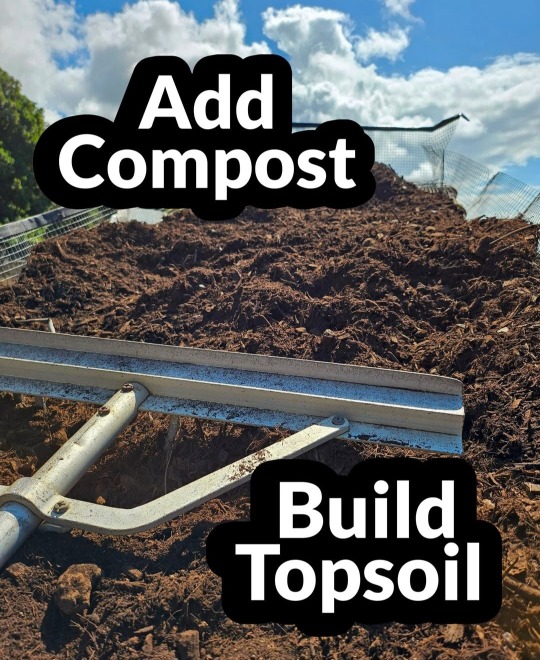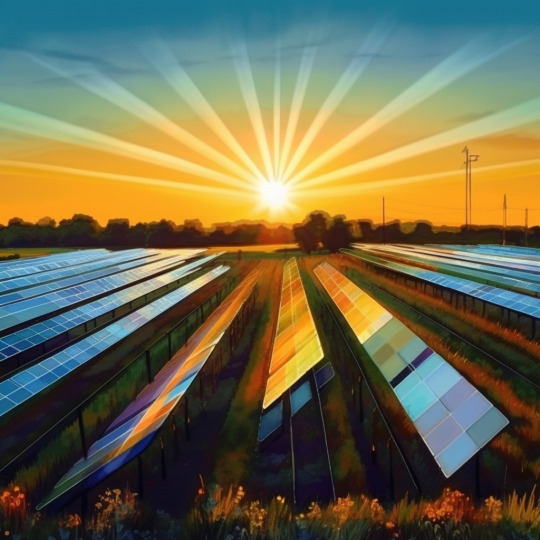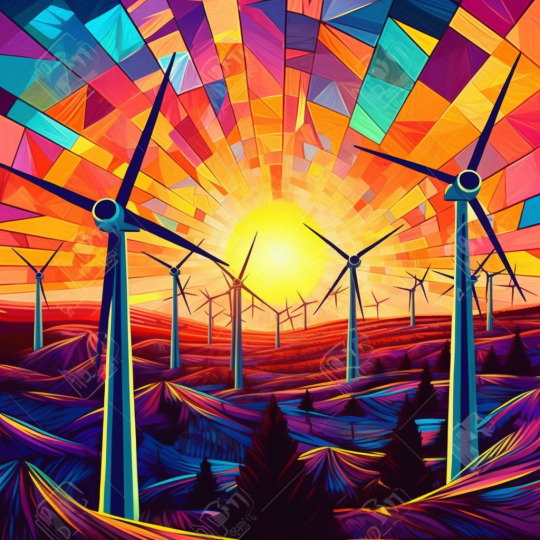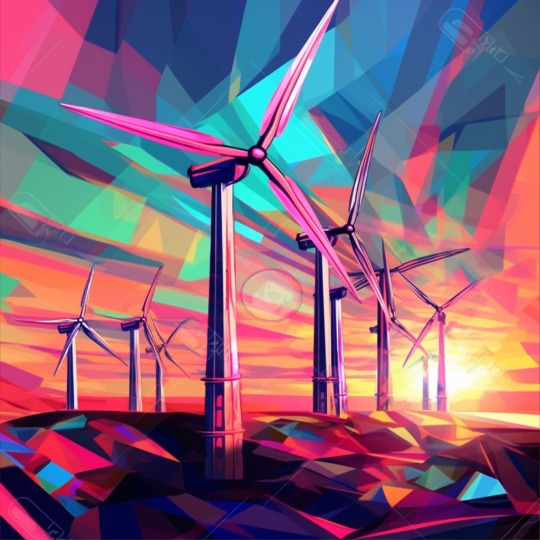#green future
Explore tagged Tumblr posts
Text
No-paywall version.
"You can never really see the future, only imagine it, then try to make sense of the new world when it arrives.
Just a few years ago, climate projections for this century looked quite apocalyptic, with most scientists warning that continuing “business as usual” would bring the world four or even five degrees Celsius of warming — a change disruptive enough to call forth not only predictions of food crises and heat stress, state conflict and economic strife, but, from some corners, warnings of civilizational collapse and even a sort of human endgame. (Perhaps you’ve had nightmares about each of these and seen premonitions of them in your newsfeed.)
Now, with the world already 1.2 degrees hotter, scientists believe that warming this century will most likely fall between two or three degrees. (A United Nations report released this week ahead of the COP27 climate conference in Sharm el Sheikh, Egypt, confirmed that range.) A little lower is possible, with much more concerted action; a little higher, too, with slower action and bad climate luck. Those numbers may sound abstract, but what they suggest is this: Thanks to astonishing declines in the price of renewables, a truly global political mobilization, a clearer picture of the energy future and serious policy focus from world leaders,
we have cut expected warming almost in half in just five years.
...Conventional wisdom has dictated that meeting the most ambitious goals of the Paris agreement by limiting warming to 1.5 degrees could allow for some continuing normal, but failing to take rapid action on emissions, and allowing warming above three or even four degrees, spelled doom.
Neither of those futures looks all that likely now, with the most terrifying predictions made improbable by decarbonization and the most hopeful ones practically foreclosed by tragic delay. The window of possible climate futures is narrowing, and as a result, we are getting a clearer sense of what’s to come: a new world, full of disruption but also billions of people, well past climate normal and yet mercifully short of true climate apocalypse.
Over the last several months, I’ve had dozens of conversations — with climate scientists and economists and policymakers, advocates and activists and novelists and philosophers — about that new world and the ways we might conceptualize it. Perhaps the most capacious and galvanizing account is one I heard from Kate Marvel of NASA, a lead chapter author on the fifth National Climate Assessment: “The world will be what we make it.” Personally, I find myself returning to three sets of guideposts, which help map the landscape of possibility.
First, worst-case temperature scenarios that recently seemed plausible now look much less so, which is inarguably good news and, in a time of climate panic and despair, a truly underappreciated sign of genuine and world-shaping progress...
[I cut number two for being focused on negatives. This is a reasons for hope blog.]
Third, humanity retains an enormous amount of control — over just how hot it will get and how much we will do to protect one another through those assaults and disruptions. Acknowledging that truly apocalyptic warming now looks considerably less likely than it did just a few years ago pulls the future out of the realm of myth and returns it to the plane of history: contested, combative, combining suffering and flourishing — though not in equal measure for every group...
“We live in a terrible world, and we live in a wonderful world,” Marvel says. “It’s a terrible world that’s more than a degree Celsius warmer. But also a wonderful world in which we have so many ways to generate electricity that are cheaper and more cost-effective and easier to deploy than I would’ve ever imagined. People are writing credible papers in scientific journals making the case that switching rapidly to renewable energy isn’t a net cost; it will be a net financial benefit,” she says with a head-shake of near-disbelief. “If you had told me five years ago that that would be the case, I would’ve thought, wow, that’s a miracle.”"
-via The New York Times Magazine, October 26, 2022
#climate change#global warming#renewable energy#climate anxiety#climate crisis#humanity#green energy#green future#apocalypse#natural disasters#good news#hope#research#hope posting
2K notes
·
View notes
Text





114 notes
·
View notes
Text

Topsoil is the foundation of healthy farming and food production, but it’s being lost at alarming rates❗️
Adding compost to the surface of our soils is one way we can increase organic matter (OM) and help rebuild this precious layer. ✨️
But let’s be real: rebuilding topsoil takes time and consistent care. It’s not a quick fix.
Compost enriches the soil, feeds microbes, and improves water retention—laying the groundwork for healthier, more productive land over the long term. 🌳🌻
Every bit of compost we add is a step toward healthier soils and more resilient farms. 🌍
🌞 Let’s work with nature, not against it.
#soil health#soil science#soil#environmental justice#environmental education#environmental awareness#regenerative agriculture#regenerative farming#agriculture#sustainability#sustainable farming#sustainable living#organic matter#organic lifestyle#organic farming#organic life#compost lifestyle#composting#compost#vermicompost#top soil#biodiversity#ecomindset#conservation#nature lovers#take action#planet over profit#protect the environment#green future#permaculture
23 notes
·
View notes
Photo



Envision Our Energizing-Vibrant Renewable Future Now
#earth day#earth month#renewable energy#renewable power#ai art#ai#image generation#design#climate art#renewable electricity#power sources#vibrant skies#solar power#solar#wind#wind energy#green future#solarpunk#renewables#midjourney#imagination#image building
253 notes
·
View notes
Text
If all things were possible, what kinds of technologies and miraculous feats of science do you think would put mankind in harmony with the Earth?
Happy Earth Day from the Science-Fiction Nerds at Kaleidoscope World. 💕
#Earth Day#Earth Day 2024#science fiction#Climate fiction#Sci-fi#cli fi#environmentalism#ecopunk#solarpunk#green future#better future#climate action#Imagination and Science#Science Fiction for Science#Science Fiction for the Environment#Good News#Good Earth#climate optimism#sci fi prompts#scifi writing#scifi fantasy#science fantasy#hopepunk#humanity#faith in humanity#Faith in science#Love for the Earth#question#hypothetical question#writing prompts
17 notes
·
View notes
Photo

We must continue to invest in a sustainable future, not just for ourselves but for future generations.
#climate change#climate justice#kurt vonnegut#climate anxiety#climate action#green future#environmental justice
76 notes
·
View notes
Text
The future isn't electric cars, it's public transportation. As dr. Gupta says, lithium batteries are still very polluting, and don't exist in a large enough quantity to supply the world with enough electric cars to get everybody driving one.
The path forward that I see has well arranged public transportation in a spiderweb form rather than a wordweb. All areas connected to each other rather than all transport going to the city center. It is publicly funded through taxes so you don't have to pay every time you use the train or take a bus.
For the elderly and the disabled there are special taxis upon request. You can rent a car or a van when you really need one, electric ofc. But you have to specify the reason and if it's something dumb like 'going to the gym by car' it can get denied.
If you need a car for your job because you work in emergency services such as GP, cop, etc. you drive one from your work, which you park at your workplace at the end of your workday, after which you take public transport home. You need a special dispensation to drive a car. Your workplace needs a special dispensation to own and let you drive a car.
And imagine all the things we can do with the space that is freed up. First of all, cars actively discourage community, so neighbourhoods become a lot more social. All the extra lanes on highways that are suddenly no longer needed can be turned into strips of forests which work noise reducing. If all cars are electric and the amount driven falls by like 85% (I am pulling this statistic out of my ass, this is by no means based on any actual data) there will be significantly less noise anyway.
We can take parking spaces and turn them into pollinator gardens, community gardens, sensory gardens for children.
We can get on roads again without fear of being hit by some loser with a god complex and a tin can murder machine. We can walk, bike, convene, live.
#fuck cars#climate crisis#climate change#anolish cars#climate solutions#sustainability#walkable cities#bikeable cities#community#greencore#green future#anti car#mental health#no cars#sensory garden#greenhouse gas reduction#abolish cars
45 notes
·
View notes
Text
Some of the jobs you can do without a collage education
Now I'm not saying all jobs in this list are equal in pay amount of work needed to put in and risk
But I'm saying there are options and some may fit you!
Art
Animator
Storyboard artist / Storyboard artist
Web Design
Coder
Trade jobs (many only need certificate or associate degree)
Coacher
Making an online store
Chef
Taxi Driver
Choreographer
Afterschool lessons (If teaching a bunch of kids the fun of art or help with homework etc you can even teach a bunch at ones!)
Hairdresser
Cleaning
Garbage man
Firefighter
Pharmacy Technician
Solar Photovoltaic Installer
Recreation and Fitness Worker
Independent business
Startup
game designer
Hearing Aid Specialist
Massage Therapist
Electrician
Landscaper
Forest and conservation worker
Recycling worker
Environmental technician
Green HVAC technician
Safety coordinator
Environmental scientist
Occupational health and safety technician
Natural resources technician
And these are just some I reccommand to search for more!
You may find ones your interested in!
#job#life improvement#positivity#hope#collage#environment#future#better future#green future#life advice#how to change your life#mental health#my post
16 notes
·
View notes
Text
I keep hearing about "humans are space orks" this, and "humans are space orks" that. When everyone knows that the true space orks ARR DA REEL SPACE ORKS! DER BE NUFFIN AS GOOD AS 'AVIN A NICE KRUMP WIT DA BOIZ. DEM 'UMIES ARR NUFFING LOIK US. WE GOT MOR DAKKA! WE GOT MOR GITS! AND WE GOT MOR DAKKA! WAAAAAAAAAAAAAAGH!!!!!!!
#40k lore#humans are space orcs#wh 40k#warhammer orks#space orks#space orcs#green future#'avin a krump wit da boiz#waaaaagh
26 notes
·
View notes
Text
AMERICAN CLIMATE CORPS (ACC)
This is pretty damn cool. I feel there is so much loud and terrible Tr$mp news that we need some loud GOOD/ BIDEN news.
New jobs all dedicated to various environmental efforts for preservation and a greener future....also with an emphasis on having a diverse team.
This is promising.
#american climate corps#acc#biden#environmental health#environmental protection#environmental activism#vote blue#vote biden#green future#vote democrat
4 notes
·
View notes
Text
#save the planet#no pipelines#please sign and share#petition#petitions#please sign this petition#please share#please sign#climate action#climate science#climate activism#go green#climate crisis#save the Great Lakes#climate justice#climate solutions#environmental activism#climate change#climate catastrophe#climate collapse#climate chaos#climate and environment#climate news#environmentalist#environmentalism#green new deal#environmental#we love the earth#green future#enviromentalism
2 notes
·
View notes
Text
#permaculture#city planning#solarpunk#renewableenergy#renewables#sustainability#green future#green infrastructure#green technology#functional supply chains
58 notes
·
View notes
Text

In healthy soil, plants and microbes are constantly "talking" 🌱☎️🦠
🌿 Through their roots, plants send signals to microbes, asking for the nutrients they need.
🍬 In return, microbes deliver these nutrients in exchange for sugars the plants produce.
Regular soil testing helps us understand what’s happening in this underground network, preventing over-fertilization and helping microbes thrive. 🌞
🧪 Key Tips:
Test soil to uncover nutrient needs.
Add nutrients gradually to maintain balance.
Trust the symbiotic partnership between plants and microbes for regeneration! 🌍✨
#soil#soil health#soil science#microbes#permaculture#environmental justice#environmental education#environmental awareness#regenerative agriculture#regenerative farming#agriculture#sustainability#sustainable living#sustainable farming#organic life#organic matter#organic lifestyle#organic farming#organic#composting#compost lifestyle#compost#biodiversity#ecomindset#nature lovers#conservation#take action#planet over profit#protect the environment#green future
4 notes
·
View notes
Text

🐝🌍 UAE Urges G20 Countries to Lead the Fight Against Climate Change! 🌱💚 Let's join hands and protect our planet for generations to come! 🤝🌱 Click the link to learn more https://blog.geohoney.com/uae-urges-g20-countries-lead-climate-change #Geohoney
14 notes
·
View notes
Text
The e-bike industry is booming, and one brand that stands out is DYU. With a commitment to quality and innovation, DYU is making electric bikes more accessible and enjoyable for everyone.
Electric bikes are not just a trend; they are a sustainable transportation solution that benefits both the environment and our daily lives. DYU offers a variety of models that cater to different needs, whether you're commuting to work, enjoying a leisurely ride, or tackling tough terrains.
If you're considering an electric bike, DYU provides excellent options that combine affordability with top-notch performance. Their e-bikes are designed for comfort and efficiency, making every ride a pleasure. Plus, with their stylish designs, you can ride in style!
Join the e-bike movement and experience the joy of riding with DYU. You won't just be purchasing a bike; you'll be investing in a greener future!
#comfort#sustainable transportation#efficiency#DYU#electric bikes#green future#stylish designs#tough terrains
0 notes
Text
The e-bike industry is experiencing an exciting boom, and one brand that stands out is DYU. With their innovative designs and commitment to quality, DYU is making electric bicycles more accessible and enjoyable for everyone.
Electric bicycles are not just a trend; they represent a sustainable and efficient mode of transportation that can transform urban mobility. DYU's e-bikes are designed with the user in mind, featuring lightweight frames, powerful motors, and long-lasting batteries. This makes them perfect for commuting, leisure rides, or even tackling challenging terrains.
What sets DYU apart is their dedication to incorporating advanced technology into their bikes. With features like smart displays, Bluetooth connectivity, and customizable riding modes, riders can enjoy a personalized experience that enhances their journey.
As more people seek environmentally friendly alternatives to traditional vehicles, the electric bicycle market is poised for growth. DYU is at the forefront of this movement, providing high-quality and stylish options that cater to diverse needs and preferences.
In conclusion, the electric bicycle industry is thriving, and brands like DYU are leading the way towards a greener future. If you haven't tried an e-bike yet, now is the perfect time to explore the benefits and joy of riding one!
0 notes